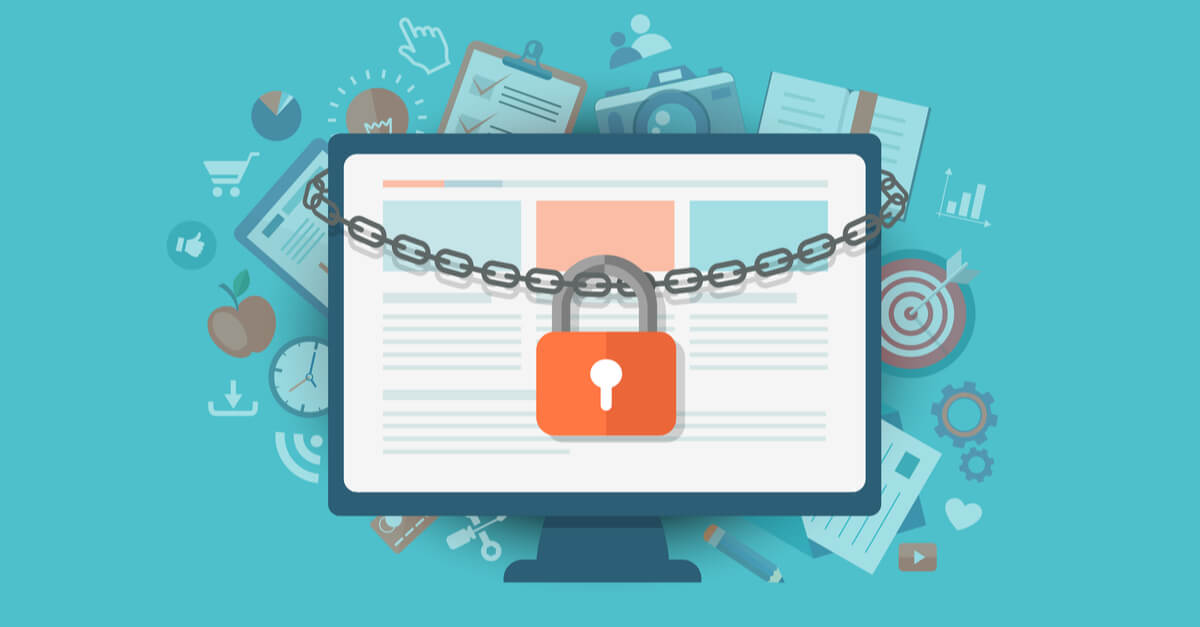5 Best CMS For SEO: Which One Optimizes Content Management?
Feb 11, 2026

Feb 11, 2026

Feb 11, 2026

Feb 10, 2026

Feb 09, 2026

Feb 07, 2026

Feb 06, 2026

Feb 06, 2026

Feb 05, 2026
Sorry, but nothing matched your search "". Please try again with some different keywords.


73.9% of websites are hacked for SEO purposes. Search engine optimization is one of the primary goals of a business’ website. However, its and its visitors’ protection plays an important role in upholding its SEO rankings.
The measures you take to ensure your site’s safety deeply factor in its SEO. These measures are important to ensure the smooth functioning of your website and that users have a seamless experience with you.
With the staggering rise of digital theft, companies are deploying extra cyber security precautions and so are search engines. Let’s take a look at why prioritizing visitor protection on your website can boost your SEO.
Website security refers to protecting a website from unauthorized disruption, access, and use. If your business has a web presence, you’d want it to stay protected from illegal activities and thefts as it contains confidential information.
Another aspect of website security comes in the form of visitor security. You want every user that visits your website to have a positive, fruitful experience that makes them come back to you again and again.
They should know that your platform is safe for them to use and that any information they give you will stay protected with you. Establishing this trust with users directly boosts SEO as more users become willing to visit your website.
Let’s take a deeper look at how prioritizing website visitor protection can help boost your SEO rankings and how to do it right. Read on to know more.
When looking to optimize your website, the focus used to be on keywords and rankings. But with the rise of digital theft, Google isn’t just focused on delivering quality and relevant results, it’s also determined to weed out the unsafe websites and only pick the safe options.
This is where the connection between website security and SEO lies. Google has introduced new and improved mechanisms such as Penguin and Hummingbird that work to eliminate black hat SEO practices such as link spamming.
This has prompted companies to put more focus on the protection of their websites and not prevent them from getting into Google’s bad books. Here’s a guide on digital footprints’ importance in fraud prevention.
Your goal should be to protect your website from online theft in every facet — visitor protection being one of them. Your website being free of spam, malware, and data theft of visitor information makes Google identify it as a safe source.
Google will then pick it up for relevant keywords in search results, directly boosting your rankings and bringing in more users. Getting more users also boosts ranking and so does them collectively spending more time on your web pages.
Continuing the conversation from the earlier point, the amount of time a user spends on your website, the better your SEO will be. This is because it increases your website’s dwell time as well as the total time spent on your website:
Dwell time contributes to the total time spent on your site. The longer it is, the more relevant Google will deem your content for that search result. But any user will only spend time on your website when they feel safe and welcome to the website.
Deploying security protocols helps you ensure a safe and seamless experience for your visitors. When they see that their stay on your website is protected, they’d be more willing to engage with you.
Users will be more willing to click on your link in their search results as they recognize your website as safe. Moreover, Google will also recognize your website as safe and promote it in the search results, directly helping your dwell time and overall time.
Another important reason to prioritize visitor protection on your website is the goodwill it brings your brand. Having a website that goes over and above to ensure the safety of its users is a surefire way to increase your brand value.
If your website has less than desirable security measures that end up risking visitor protection or compromising the confidential data they provide you, it will negatively impact your reputation. Google will identify you as a risky site.
This will make you lose the organic traffic you receive through Google searches. Moreover, users in general will avoid your website even if they receive paid ads for it. This doesn’t only apply to major security breaches that cause harm to users.
Visitors may take umbrage with the smallest of security lapses, such as the website not asking for permission to use a piece of information. They’ll recognize this as the website invading their privacy or being loosely monitored to ensure visitor security.
This can make them not trust your website and refrain from returning to it in the future. When you make your website visitor-safe, it becomes an additional point for you to market your brand as. You can advertise the effort you put in to ensure the safety of your users.
Users are far more likely to engage with a website that is safe for them to use. They might even stay on the website to explore when they don’t find what they were looking for right away. This is an important tactic that impacts your SEO.
To boost your SEO rankings, you need to attract more and more users to your website, as discussed in the second point above. However, simply attracting people is not going to work in the long run.
You need to make them stay with you. And being a safe and hassle-free website makes it far more likely for users to engage with you further than just getting the answers they need and leaving (only helping your dwell time but not overall time).
For example, if a user finds your clothing website by searching for matches for blue jeans and looking up the shirts you offer, you can engage them further by offering some t-shirts and jackets as well. But they will only engage with the additional options when they’re sure the website is safe for them to explore.
Tip: Let the users know as soon as they enter the website that it’s secure and in what ways. Additionally, invite them to an optional tour that explores the different ways you’ve worked to ensure their safety.
Doing so lets them know right from the get-go that the website is secure and they can roam about freely, easing their nerves and making them stay longer than they might have. Secondly, giving an optional tour lets them know the effort you put into their safety, earning their trust.
At the end of the day, the goal of your website is to give users a positive experience with you. This is what stays with them and what they come back for over and over. Prioritizing visitor protection on your website helps you accomplish that goal in a tangible manner.
Users are sure to appreciate a website that values their security and puts in the effort to enhance it. It directly impacts their experience with you. Enhanced user experience helps decrease bounce rates and improve conversion rates and ROI.
These are some of the most important pillars of SEO. Improving them improves your overall SEO. To achieve this, you can have little surveys spread across your website that users can engage with and let you know the experience they’re having.
You can even ask them for suggestions on how to improve their experiences, what they might be having trouble with, and what they already like. As pointed out in the previous point, you can highlight the effort you put into their protection in the surveys and other interactions you have with your audience.
Let them know that their confidential information is safe with you and that you’ve gone the extra mile to ensure that. It also lets them see that you’re transparent in your interactions with them, earning their trust.
Cyber security is the need of the hour in the era of digitization and rising digital theft. As brands work to establish a formidable presence in the digital space, ensuring visitor protection on their websites can prove to be an excellent way to do it.
It makes the website safe to use, making it come clean under Google’s scanner and being promoted in relevant searches. Users are also more willing to engage with it as they know their confidential data is in safe hands.
Let us know in the comments why you think ensuring visitor protection is key to boosting SEO rankings.
Read Also:
Abdul Aziz Mondol is a professional blogger who is having a colossal interest in writing blogs and other jones of calligraphies. In terms of his professional commitments, he loves to share content related to business, finance, technology, and the gaming niche.
View all Posts

